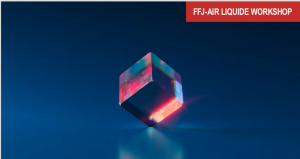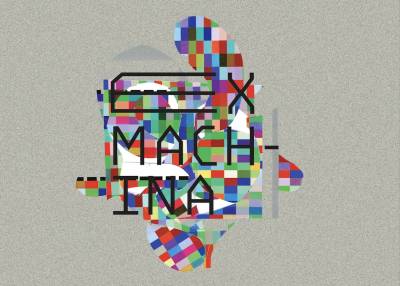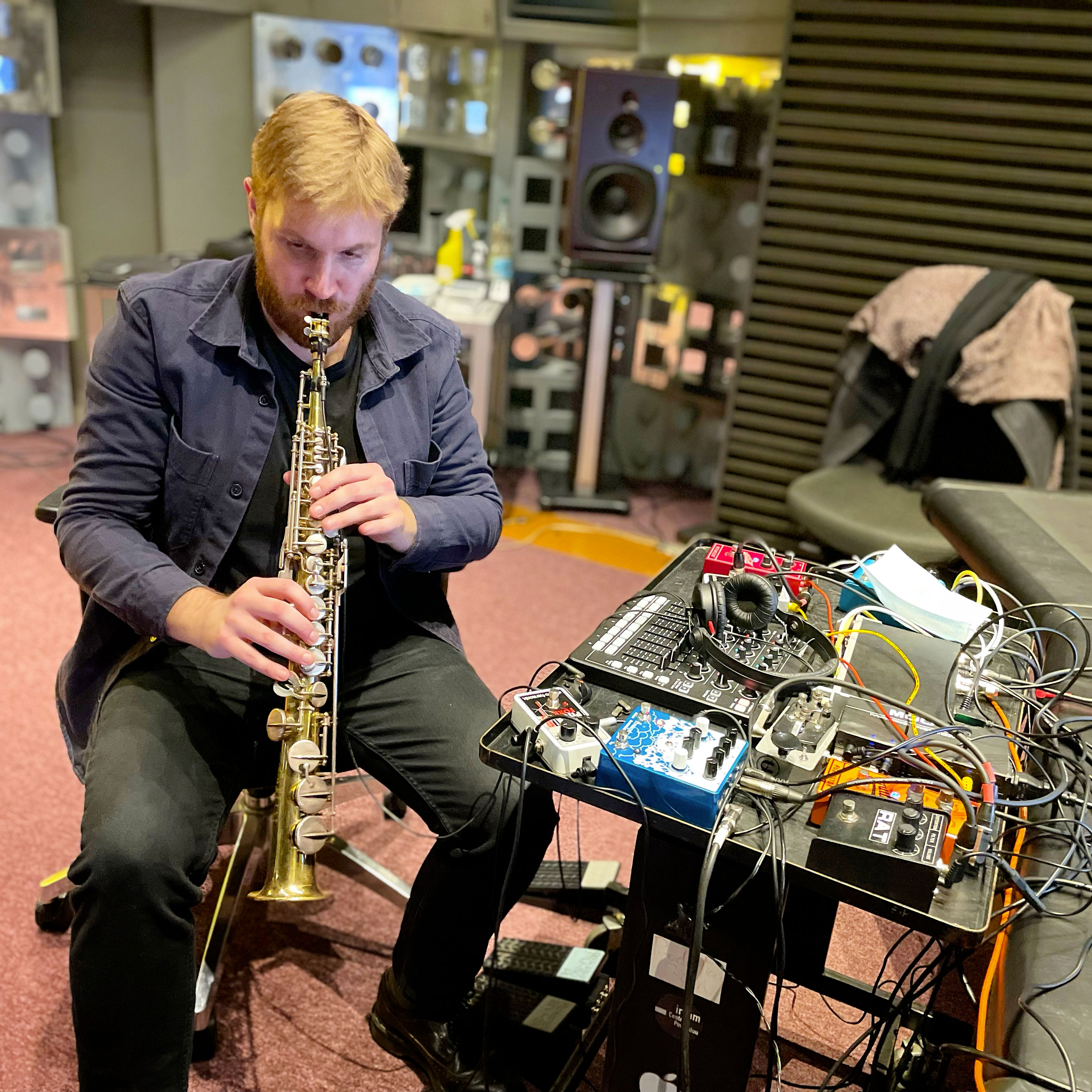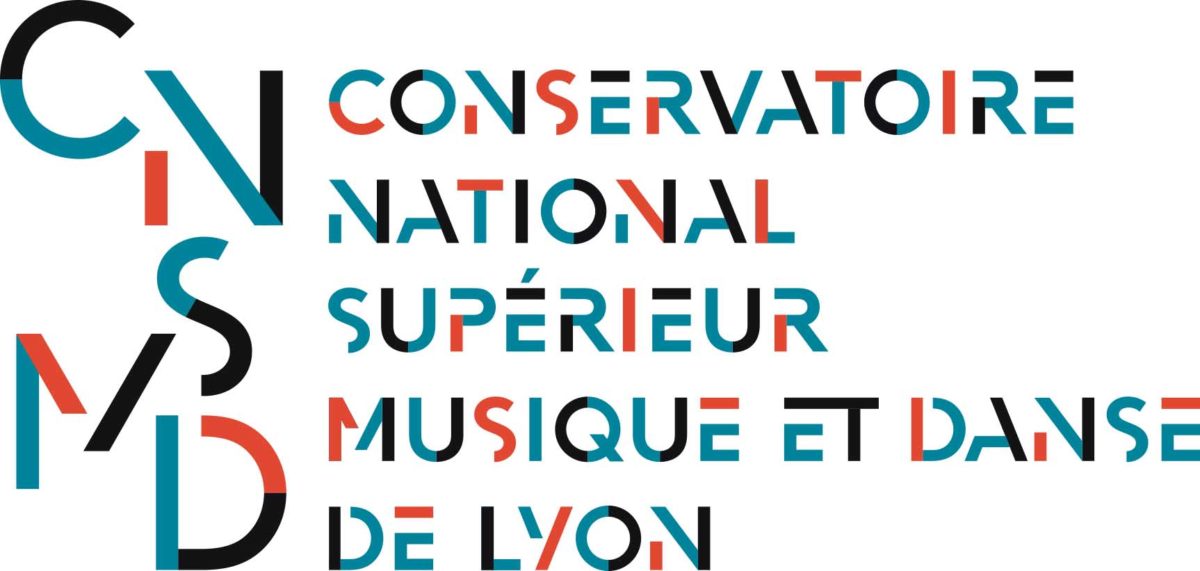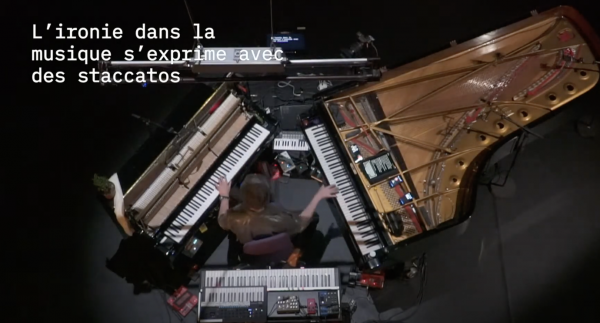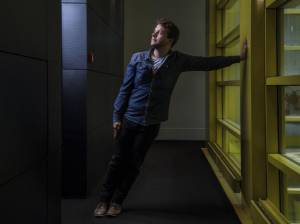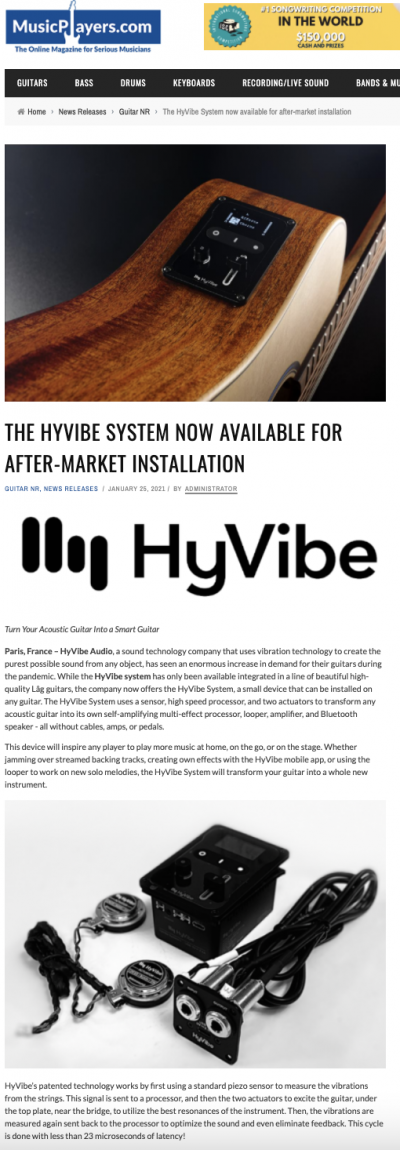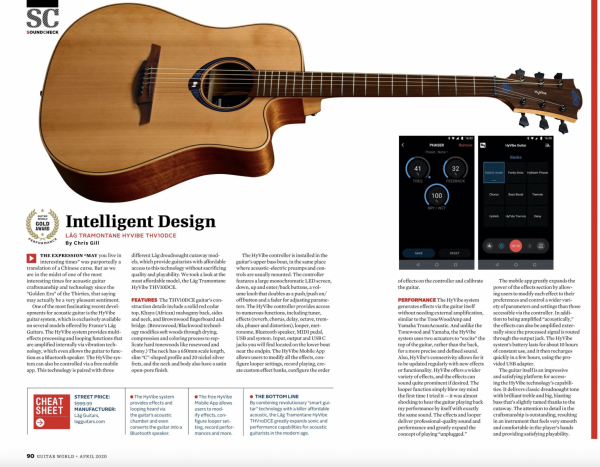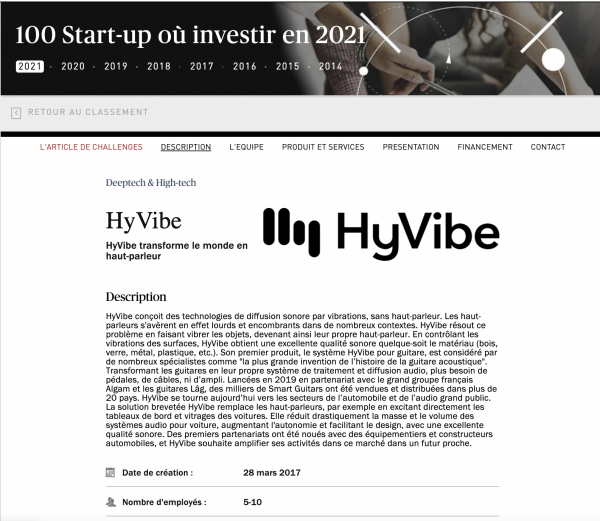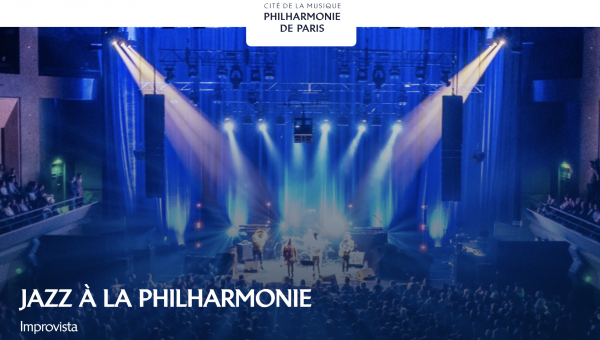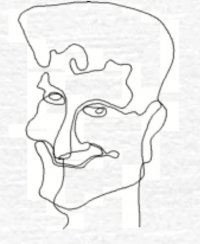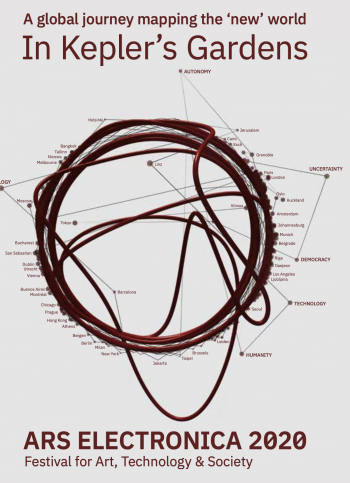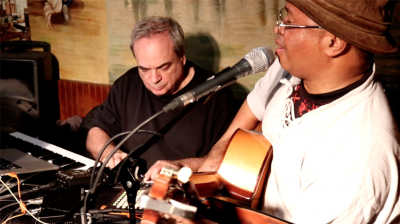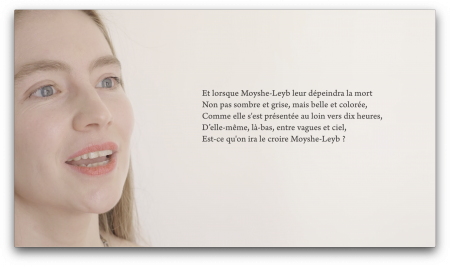MERCI Events
G. Assayag Invited at Air Liquide / FFJ EHESS Workshop on AI and Arts
The Role of Art in Advanced Technology a FFJ - Air Liquide Workshop at Fondation France-Japon de l'EHESS (18 February 2022)
The world is changing rapidly with technology. One of the latest technologies to drive such changes would be Artificial Intelligence (AI). The progress of AI is accelerating day by day and has already surpassed human capabilities in various areas. However, on the other hand, it seems that society is not yet ready to accept such rapidly accelerating technology. Under such circumstances, art is attracting attention to foresee the changes caused by advanced technology and make them understandable to people. In this symposium, titled "The Role of Art in Advanced Technology" we will have presentations and discussions by artists creating artworks using advanced technology and by researchers who are thinking about the relationship between advanced technology and art.
The Press and the Radio talks about Ex-Machina
Press & Radio coverings of Ex-Machina in Le Monde, Liberation, France-Info, Jazz Magasine , Jazz Magasine (2), Citizen Jazz, La Terrasse
Jazz Magasine on the last rehearsal of Ex-Machina at the Dynamo in Pantin :
" Mais, s’il faudrait multiplier les mentions spéciales pour les musiciens tous admirables cités plus haut, tous ici à (re)découvrir, c’est par la matière électronique – les enveloppant, les prolongeant, pulvérisant leurs discours ou y portant la répartie – qu’il faut conclure. Loin des boucles élémentaires du dance floor, loin des consonances doucereuses de certains paysagistes sonores très en vogue, on est transporté vers des univers inconnus dont les mille détails font appel presque autant au regard et au toucher qu’à l’ouïe ; on est entraîné – avec les instrumentistes, comme si soudain, face à l’inouï, nous nous identifions à eux – au travers d’évènements, de péripéties, de rebondissements et d’épiphanies qui nous font grandir. "
Ircam Articles on experience feed-back :
.in ex machina .jazz ex machina
"Ex Machina", Steve Lehman and Orchestre National de Jazz
American saxophonist Steve Lehman and Frédéric Maurin, artistic director of the Orchestre National de Jazz, present "Ex Machina", that will be premiered on Friday, February 11, 2022, at Studio 104 of the Maison de la Radio et de la Musique in Paris, as part of the Présences festival dedicated to the composer Tristan Murail. By collaborating with Jérôme Nika to integrate devices created using the DYCI2 environment in the composition process and in the soloists' improvisations in real-time, the computer becomes, in turn, a generator of electronic orchestrations for the composers and an improvisation partner for the musicians."Ex Machina" will then go on tour, the first known date for now is February 12, 2022, Bimhuis, Amsterdam, Netherlands.
“Ex Machina”: Steve Lehman, Frédéric Maurin – Premiere 2022 commissioned by IRCAM-Centre Pompidou and the Orchestre National de Jazz. Frédéric Maurin artistic direction, Jérôme Nika generative electronics creation and artistic collaboration, Dionysios Papanicolaou IRCAM computer music design, Axel Roebel IRCAM-STMS Scientific Advisor, Sound Analysis-Synthesis Team, Executive producer Orchestre national de jazz.
An Ircam-Centre Pompidou, Radio France coproduction. With the support of the ANR project MERCI, ERC Advanced Grant REACH project led by Gérard Assayag and supported by the European Research Council under the Horizon 2020 program, the Sacem, and the Centre National de la Musique.
Listen to Ex-Machina concert streamed live on France Musique
Festival Présence à Radio France
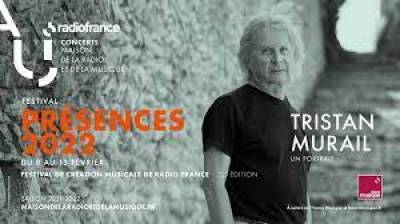 Le festival Présences, organisé par Radio France du 8 au 13 février, dédie son édition 2022 au compositeur emblématique du spectralisme Tristan Murail. Parmi la vingtaine d’œuvres au programme, «l’Esprit des dunes» et «Désintégrations».
Le festival Présences, organisé par Radio France du 8 au 13 février, dédie son édition 2022 au compositeur emblématique du spectralisme Tristan Murail. Parmi la vingtaine d’œuvres au programme, «l’Esprit des dunes» et «Désintégrations».
Tristan Murail revient sur son élève Steve Lehman, programmé dans le même festival pour la pièce Ex-Machina qui utilise les dispositifs d'IA créative du projet MERCI et REACH de l'Ircam. Lehman a proposé au long de sa carrière une articulation des techniques spectrales dans la composition et de l'interaction la plus futuriste avec l'ordinateur.
Lire les articles dans Le Monde, ici, et là, et dans Liberation.
Residency of Rémi Fox, project "C'est pour ça"
For half a dozen years, saxophonist and improviser Rémi Fox has been collaborating with Gérard Assayag’s Musical Representations team to experiment with the different software instruments developped by the team. Trained in jazz and improvisation, Rémi Fox is indeed an ideal subject for testing improvised musical interaction tools in the framework of the Omax, SoMax, or Improtech projects and, more recently, DYCI2 developed by Jérôme Nika.
Rémi Fox explains ”The residency will give us the opportunity to exhaustively test all the ways in which the tool works," says Rémi Fox. The machine can work from an existing musical memory or by simply listening to its partner. ”Then, in the flow of the performance, Jérôme 'plays' with his machine: he can order it to follow me or not, and in what way, he can ask it to take up whole phrases or simply grains of sound. Sometimes, he may want the speech produced to sound like a machine (in the sense that it would be impossible for a human to produce this kind of phrase), or, on the contrary, he may want that one can no longer distinguish between machine and human. From one extreme to the other, there is a whole range of possibilities that we are eager to explore.”
Virtual Concert "Dialogos Telematicos" (Telematic Dialogs)
December 9th, 2021 - On line event - Recording
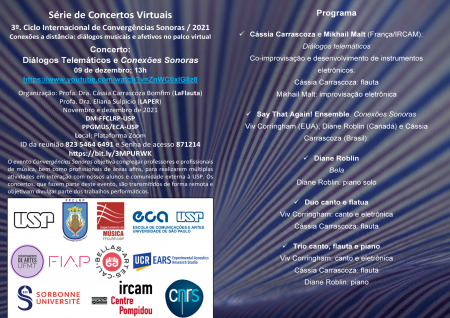
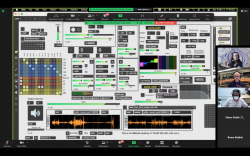 Telematic Dialogs is a beginning of a research project around the question of listening, musical co-improvisation and electronic instruments making seen from the point of view of telematic improvisation, it means online and distributed network music strategies.
Telematic Dialogs is a beginning of a research project around the question of listening, musical co-improvisation and electronic instruments making seen from the point of view of telematic improvisation, it means online and distributed network music strategies.
At the level of listening, we explore other ways of listening as the work of Pauline Oliveros to exploring “deep listening” strategies, based on an awareness of sound that does not only pass through the intellectual, but through all the doors of our senses.
In terms of composition, we come back to Iannnis Xenakis' question, in the famous “Musiques Formelles”, but which also appeared in the Japanese Gutaï movement, that is, “what are the minimum conditions for a phenomenon to be considered a work of art”?
At the level of lutherie: it is the question of «how to choose the electronic instrument for each musical situation and what the place of generative strategies in this context.»
At the performance level: how an instrumentalist reacts to electronic or computerized algorithms.
Workshop Conservatoire national supérieur de musique et de danse de Lyon
Workshop for student performers of the transversal creation space, the Artist Diploma - Creation and improvisation courses of the CNSMD of Lyon (Conservatoire national supérieur de musique et de danse de Lyon), September 29, 2021.
Gérard Assayag and Jérôme Nika from the IRCAM's Musical Representations research team will present their work on the formal structures of music and creative environments for musical composition and interaction. This work leads to applications in the fields of computer-aided composition (CAD), performance, improvisation, interpretation and computational musicology.
"Music of Choices", Alexandros Markeas
"Music of Choices" is considered as a combination between a musical happening and interactive games by its creator Alexandros Markeas, and was created on June 16, 2021 in the Grande Salle of the Centre Pompidou as part of the Festival Manifeste.
A mechanical piano driven in real time by the DYCI2 software creates music on the fly according to a reactive listening of Alexandros Markeas' improvisations on a grand piano. During the preparatory residencies, Alexandros Markeas' work with Jérôme Nika and Manuel Poletti was to "meta-compose" the behaviours of several generative agents by defining their learning corpus, their listening mechanisms, the temporality of their reactions etc. Real-time music generation then comes from the activation of the learned models through the analysis of the pianist's live audio.
Music of Choices": Musical happening and interactive games
Creation 2021 commissioned by IRCAM-Centre Pompidou
Alexandros Markeas: conception, composition, interpretation
Aliénor Dauchez: director, set design
Christoph Knoth: web development
Bastian Zimmermann: dramaturgy
Manuel Poletti: IRCAM computer-music design
Benjamin Matuszewski: (interaction sound music movement team)
Jérôme Nika (Musical Representations team) IRCAM scientific collaboration.
Press :
Le Figaro Quand l’intelligence artificielle devient un instrument de musique.
Le Monde Jérôme Nika marie science et musique en bonne intelligence.
Telerama ManiFeste 2021 : l’Ircam invente le festival musical de demain.
"Critical Climate Machine", Gaetan Robillard
Critical Climate Machine is a project by Gaëtan Robillard that quantifies and reveals the mechanisms of misinformation on global warming. The project was conceived in the framework of European network Mediafutures (of which IRCAM is a partner), at the end of 2020, to launch and support artistic projects that highlight the major role taken by data in media and the contemporary world. As a result, the project consists of a walk-in room with a data sculpture using artificial intelligence in real-time, and a sound installation. Between digital and physical formats, the ensemble offers an experience on how both machine learning and climate change enter public debate.
Every minute, a thousand tweets containing misleading claims about climate change are transformed and analyzed by a network of embedded processors. The visual output of the installation becomes a landscape of “error codes”. With the help of a code sheet – the audience is invited to identify the misleading arguments to which each of the tweets corresponds. A visualization witnesses the thermal evolution of the sculpture parts.
To complete the installation sonically, Gaëtan Robillard participated in a residency at IRCAM, drawing on the research of Jérôme Nika (DYCI2, designed for musical improvisation). With the help of computer music designer Dionysios Papanikolaou, the creative process extended on using the DYCI2 machine to generate new phrases from a database of specially designed and played dialogues containing various skeptics claims and their refutations.
On the one hand, resulting dialogues are the result of a “disordering” of recorded speech and, on the other, they reconstruct units of meaning. In other words, DYCI2 makes it possible to generate purely musical phrases, but also to provoke accidents or shifts in meaning that make the nature of language on the climate appear in a novel way. Not only does the sound work bring about oppositions between the computable and the non-computable, it also tackles the relationship between technology and society.
Currently (until end of February 2022) Critical Climate Machine (Patterns of Heat) is featured in the exhibition Digiloglounge Who Can We Trust? at ZKM, Karlsruhe. Critical Climate Machine was exhibited as well in the Deutsches Museum, Nürnberg in October and November 2021.
Gaëtan Robillard, Jérôme Nika (musical representations team) IRCAM scientific collaboration; Tony Houziaux, sound designer; Dionysios Papanikolaou, computer music designer; Özlem Sulak, artist advisor; Vincent Nozick, deep learning expert; Laurine Capdeville, engineer designer; Jolan Goulin, engineer programmer; John Cook, Monash Climate Change Communication Research Hub, Monash University, Australia. Constantine Boussalis, Department of Political Science, Trinity College Dublin, Ireland; Travis G. Coan, Department of Politics and the Exeter Q-Step Centre, University of Exeter, United Kingdom.
Improvise cum machina
Le 3 décembre dernier, au cours du Grand Soir Numérique qui s’est tenu à la Philharmonie de Paris dans le cadre de la Biennale Nemo des Arts Numériques, trois solistes de l’Ensemble intercontemporain (le trompettiste Lucas Lipari-Mayer, le contrebassiste Nicolas Crosse et le percussionniste Samuel Favre) se sont pour la première fois prêtés à l’expérience d’improviser avec une machine. En l’occurrence, il s’agit de l’environnement informatique OMax – dont le développement, par l’équipe Représentations musicales de l’Ircam, se poursuit dans le cadre du projet REACH (pour Raising co-creativity in cyber-human Musicianship), lauréat d’une bourse ERC Advanced Grant 2019 et du projet ANR MERCI. La machine était pilotée par le musicien Benjamin Lévy, qui a lui-même fait partie de l’équipe Représentations musicales.
Ecouter le concert sur Radio France
Artisticiel, Cyber Improvisations
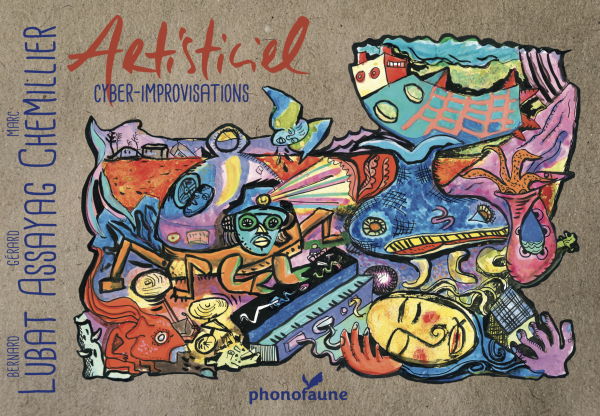 Dans la collection des Dialogiques d’Uzeste, le musicien de jazz Bernard Lubat dialogue avec les systèmes d'intelligence artificielle (IA) musicale créés par l’équipe Représentations musicales de l’Ircam et leurs concepteurs Gérard Assayag (Ircam-STMS) et Marc Chemillier (CAMS-EHESS).
Dans la collection des Dialogiques d’Uzeste, le musicien de jazz Bernard Lubat dialogue avec les systèmes d'intelligence artificielle (IA) musicale créés par l’équipe Représentations musicales de l’Ircam et leurs concepteurs Gérard Assayag (Ircam-STMS) et Marc Chemillier (CAMS-EHESS).
Ces cyber-improvisations musicales sont l'aboutissement de plus d'une décennie de complicité artistique, de recherche scientifique au plus haut niveau (désormais honorée par le très compétitif European Research Council Advanced Research Grant, ERC REACH), d'expérimentations tous azimuts et de développement d'une série de logiciels qui ont véritablement changé le monde de l'IA musicale (Omax, somax, ImproteK, Djazz, DYCI2).
Le disque regroupe trois performances jazz enregistrées à New York, Philadelphie (lors des festivals Improtech organisés par les auteurs) et Uzeste, et six expériences in-vitro en studio. Le livre contient 168 pages bilingues d'appareil critique et philosophique sur les enjeux de la création partagée entre humains et machines par Bernard Lubat, Gérard Assayag, Marc Chemillier, et le grand pionnier du domaine, George Lewis.
Sortie le 28 mai 2021 chez Phonofaune, Artisticiel en livre disque ou en streaming est disponible sur les grandes plateformes digitales (qobuz, Amazon Music, deezer, Spotify, youtube, Apple Music), enseignes en ligne (Fnac, etc), chez les libraires et disquaires.
Artisticiel sur France Musique, Jazz Culture, 27 mai 2021
Somax 2 is released !
June 4, 2021.
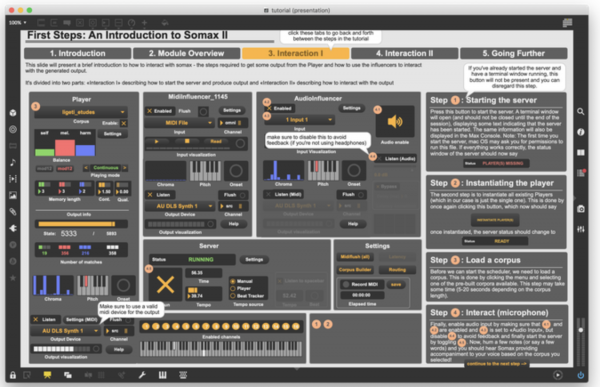 Somax 2 is a completely redesigned version of the mythical Somax reactive co-improvisation paradigm conceived in the Ircam music representation team but never released before.Somax 2 is an application for improvisation and music composition based on a generative model with reactive multi-agents. It provide stylistically consistent improvisations, while listening and adapting - strictly or loosely - to a musician playing (or any other type of audio or MIDI source).
The model operates in the symbolic domain (it can listen to audio) and is trained on musical corpora, from which it draws its material and knowledge.
Somax 2 is a completely redesigned version of the mythical Somax reactive co-improvisation paradigm conceived in the Ircam music representation team but never released before.Somax 2 is an application for improvisation and music composition based on a generative model with reactive multi-agents. It provide stylistically consistent improvisations, while listening and adapting - strictly or loosely - to a musician playing (or any other type of audio or MIDI source).
The model operates in the symbolic domain (it can listen to audio) and is trained on musical corpora, from which it draws its material and knowledge.
Written in Max and Python, it features a modular multithreaded implementation, multiple wireless interacting players, new UI design with tutorials and documentation, as well as a number of new interaction parameters.
Read More about Somax 2 release and find videos and software download
Le Monde newspaper features Jérôme Nika
Le Monde publishes a full page article by Pierre Gervasoni on Jerôme's work on Creative AI in the Music Representation Team, project MERCI and REACH.
" Le jeune chercheur met l’intelligence artificielle au service de la musique en donnant toujours la priorité à la dimension artistique. Démonstration au festival ManiFeste, en juin à l’Ircam."
Read the full paper in Le Monde
HyVibe remporte le prix Industrie 2021 de la Société Française d'Acoustique
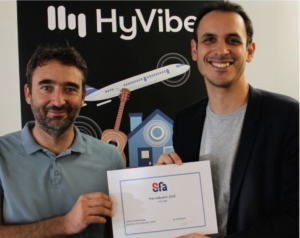 We are honored to have won the Industry Award at this year's SFA Société Française d'Acoustique (French Acoustic Society) Industry meeting hosted by the NAVAL GROUP at the La Cité de la Mer. The conference was a great opportunity to meet new friends and discuss new projects with the best and brightest minds in the French acoustic community.
We are honored to have won the Industry Award at this year's SFA Société Française d'Acoustique (French Acoustic Society) Industry meeting hosted by the NAVAL GROUP at the La Cité de la Mer. The conference was a great opportunity to meet new friends and discuss new projects with the best and brightest minds in the French acoustic community.
The HyVibe System is now available for after-market installation on a guitar of your choice!
HyVibe is a finalist of Midemlab startup competition 2021
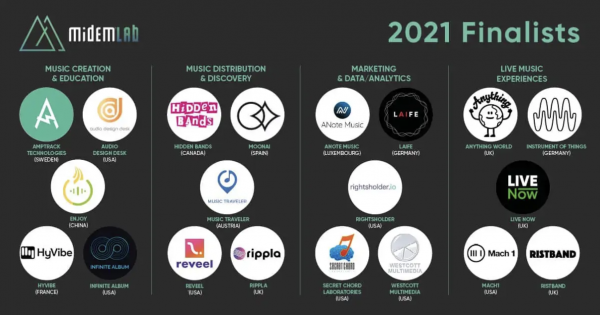 “Midemlab is always the place to discover fantastic music tech startups with the potential to disrupt, improve and enhance our industry. This year is no exception,” said Midem Director, Alexandre Deniot. “We received 203 incredible submissions from 34 countries, a testament to the fact that the dynamism of entrepreneurship in the music industry is still intact and in great shape, despite the difficult time we’ve been through these past 18 months.”
“Midemlab is always the place to discover fantastic music tech startups with the potential to disrupt, improve and enhance our industry. This year is no exception,” said Midem Director, Alexandre Deniot. “We received 203 incredible submissions from 34 countries, a testament to the fact that the dynamism of entrepreneurship in the music industry is still intact and in great shape, despite the difficult time we’ve been through these past 18 months.”
The Lâg HyVibe Guitars win the Gold Award from Guitar World Magazine
HyVibe dans les 100 meilleures startups 2021 du magazine Challenges
HyVibe at the 2020 NAMM Show, Anaheim, CA, USA
 HyVibe had a great time at NAMM 2020. We had the chance to be invited in the booth of our partner Lâg Guitars. We met fascinating people and started new collaborations.
HyVibe had a great time at NAMM 2020. We had the chance to be invited in the booth of our partner Lâg Guitars. We met fascinating people and started new collaborations.
Improtech Paris-Athina, the movie !
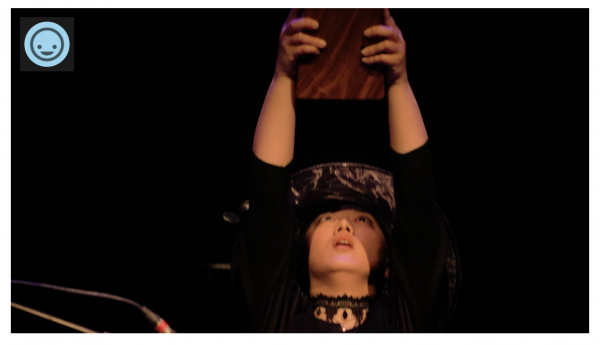 Improtech Paris-Athina brought together in Athens the finest artists, musicians, composers and researchers from all over the world, all motivated by the potentialities of co-creative dynamics between humans and machines. With three exceptional concerts at Onassis STEGI concert hall and 3 days of lectures and workshop, ikPA19 is on the cutting edge of today's technology and music.
Finally publicly available, high quality videos fully document this outstanding event.
Improtech Paris-Athina brought together in Athens the finest artists, musicians, composers and researchers from all over the world, all motivated by the potentialities of co-creative dynamics between humans and machines. With three exceptional concerts at Onassis STEGI concert hall and 3 days of lectures and workshop, ikPA19 is on the cutting edge of today's technology and music.
Finally publicly available, high quality videos fully document this outstanding event.
Improvista ! a historical concert at the Philarmonie de Paris
A tireless activist of (free-)jazz made in France, having engaged in the most adventurous ways since the 1970s, Bernard Lubat seems the ideal maestro to lead Improvista, an evening entirely placed under the sign of improvisation. A multi-instrumentalist, Lubat juggles piano, vocals and percussion with his legendary dexterity. At his side, a vibrant constellation of major figures of the French scene unfolds, among them Michel Portal, Joëlle Léandre, Louis Sclavis, Sylvain Luc and Jacques Di Donato. The Tambours œuvriers of the Compagnie Lubat also bring their thunderous contribution to this great collective maneuver in the heat of the moment. last but not least, Lubat improvises in interaction with the creative artificial agents developed by Ircam and Djazz with their conceptor Gérard Assayag and Marc Chemillier on stage.
Listen to the Improvista Concerts recorded at the Philarmonie on Feb 1 & 2, 2020
Gérard Assayag visiting professor at University of Tokyo
 At the invitation of The Japan Science and Technology Agency (JST), Gérard Assayag visited the Research Center for Advanced Science and Technology, in the laboratory of Prof. Harada, for a two-month stay in February and March 2020. He was able to continue his research on cyber-human co-creativity and creative agents for music improvisation and set the bases for the future Improtech Paris - Tokyo. Gerard Assayag gave a workshop at the JFLI, a long time partner of the Ircam Music Representation team, on 27 February 2020, on " Raising co-crEAtivity in Cyber-Human musicianship "
At the invitation of The Japan Science and Technology Agency (JST), Gérard Assayag visited the Research Center for Advanced Science and Technology, in the laboratory of Prof. Harada, for a two-month stay in February and March 2020. He was able to continue his research on cyber-human co-creativity and creative agents for music improvisation and set the bases for the future Improtech Paris - Tokyo. Gerard Assayag gave a workshop at the JFLI, a long time partner of the Ircam Music Representation team, on 27 February 2020, on " Raising co-crEAtivity in Cyber-Human musicianship "
Shlomo Dubnov visiting professor at Ircam
Pr. Shlomo Dubnov from UCSD, a world expert in Music Infromation Dynamics and machine Learning, has visited the Music Representation team for two monthes in november / december 2021 at the invitation of Gerard Assayag. Pr. Dubnov and G. Assayag have worked on the preparation of a white paper on AI creativity in music that will give orientations to future researches in the field.
Gerard Assayag gives a Keynote at The 2020 Joint Conference on AI Music Creativity
 This JCAMC conference brings together for the first time two overlapping research forums: The Computer Simulation of Music Creativity conference (est. 2016), and The International Workshop on Musical Metacreation (est. 2012). The principal goal is to bring together scholars and artists interested in the virtual emulation of musical creativity and its use for music creation, and to provide an interdisciplinary platform to promote, present and discuss their work in scientific and artistic contexts.
G. Assayag Talks on Co-creativity and Symbolic Interaction
This JCAMC conference brings together for the first time two overlapping research forums: The Computer Simulation of Music Creativity conference (est. 2016), and The International Workshop on Musical Metacreation (est. 2012). The principal goal is to bring together scholars and artists interested in the virtual emulation of musical creativity and its use for music creation, and to provide an interdisciplinary platform to promote, present and discuss their work in scientific and artistic contexts.
G. Assayag Talks on Co-creativity and Symbolic Interaction
October 19-23, 2020 organized and hosted virtually by the Royal Institute of Technology (KTH), Stockholm, Sweden
Concert with Adrian Chaillou Organ Trio
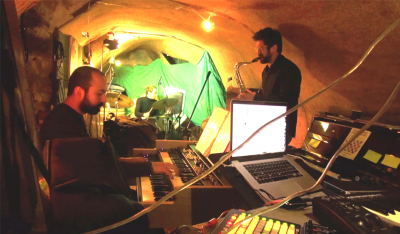 March 13, 2020 : concert with Adrian Chaillou Organ Trio and Charles Kely Zana-Rotsy, La preuve par 9 festival, Saint-Brieuc (canceled because of the Covid)
March 13, 2020 : concert with Adrian Chaillou Organ Trio and Charles Kely Zana-Rotsy, La preuve par 9 festival, Saint-Brieuc (canceled because of the Covid)
Saxophonist Adrien Chaillou was asked to interact with the Djazz software during the festival La Preuve par 9 in Saint-Brieuc in March 2020. The concert planned at the Bonjour minuit hall in Saint-Brieuc had to be cancelled because of the coronavirus epidemic. But a work session had taken place beforehand on February 28, 2020 with Adrien Chaillou (saxophone, compositions), Fady Farah (organ), Baptiste Castets (drums). The saxophonist wrote his impressions following the experiments of improvisation of the Djazz software on his own compositions: "After a first meeting with Marc, I must admit that I was bluffed by the capacities of improvisation of Djazz. This meeting between artificial intelligence and improvisation questions our place as improvising musicians […]. What to think of a machine that, unlike humans, quickly compiles abilities without any memory or technical flaws? The hand of man being present through Marc, should it be considered (and developed in this sense) as an instrument or as an expression of its own, free of any control during the improvisation?
Djazz at Ars Electronica ! Gnawa Machine
September 12-13, 2020 : Gnawa Machine Duet with Camel Zekri (guitar-machines) and Marc Chemillier (computer-keyboard), Ars electronica festival, Linz
The Gnawa machine duo of Camel Zekri (guitar-machines) and Marc Chemillier (keyboard-computer) has been invited to perform at the Ars electronica festival in Linz, Austria in September 2020, in Kepler's Gardens' "A Global Journey mapping the new world" track. As the Ars electronica catalog states (p. 249): "The challenge of Gnawa machine is to integrate the computer into a particular cultural context, that of the Gnawa brotherhood in North Africa to which Camel Zekri belongs. His modal guitar playing is accompanied on the keyboard by Marc Chemillier assisted by the Djazz system which learns automatically by enriching its memory and which is rhythmically adjusted with score following algorithms. Then the guitar becomes a controller thanks to movement sensors. It drives a second system, Le Cercle, which dialogues with the first. The two machines listen to each other and improvise on what the other is playing. Djazz records with a long-term memory while Le Cercle captures small fragments on the fly."
Watch the video of the Gnawa Machine performance at Ars Electronica 2020 (at 1:32:50)
Djazz Concerts in the Malgache Tradition
Nov 12, Dec 17, 2021, Jan 28, 2022 : Djazz duet Charles Kely Zana-Rotsy (guitare-vocals) and Marc Chemillier (computer-keyboard), bar Chez Adel, Paris
Work with Malagasy guitarist Charles Kely Zana-Rotsy resumed in October 2021 after an interruption during the health crisis and continued in the form of a series of interviews at the musician's home and a series of guitar-vocals and keyboard-computer performances in public in the bar Chez Adel in Paris (November 12, 2021, December 17, 2021, January 28, 2022, i.e., approximately once a month). This investigation should lead to the publication of an article accepted in the Cahiers d'ethnomusicologie entitled "L'hybridité vue à partir du sujet: le cas du musicien franco-malgache Charles Kely Zana-Rotsy" by Marc Chemillier and Yuri Prado, and to the making of a documentary film by Yuri Prado as an extension of the one made in 2018 by the Direction de l'image et de l'audiovisuel de l'EHESS
Three Ladies Project de G. Bloch au festival Manifeste 2020 de l'IRCAM
Concert filmé et retransmis par Radio France
Yiddish, a movie by Nurith Aviv (2020)
Yiddish is a film by Nurith Aviv (2020).
The sound of the credits was done by Georges Bloch with OMax (Music Representation team, Ircam, MERCI & REACH project). Georges Bloch also wrote the musical punctuation for the long version of the film.
"In this film, seven young people of today tell of their passion for Yiddish poetry written by authors who were about their age during the interwar period. It was a time of tremendous creative momentum in Yiddish culture. The poetry of those years was universal and intimate at the same time, in touch with all the literary and artistic trends of the time. They were multilingual and moved from country to country. Yiddishland" was not a country, but a language. The protagonists of the film, some Jewish, some not, also move between countries and languages. Each of them talks about their personal relationship to Yiddish and to a poet they particularly like. For these young people, this Yiddish poetry does not only belong to a Jewish past, but it allows them to situate themselves in front of the present."
The end credits use a meta-poem created from the seven poems read by the seven young people. It uses OMax by constructing a segmentation following the prosody of the texts.
Gérard Assayag interviewed in LIBERATION
 La musique en bonne intelligence (artificielle) (published March 13, 2020)
La musique en bonne intelligence (artificielle) (published March 13, 2020)
De plus en plus de musiciens se lancent dans des expériences avec l’intelligence artificielle, qui sait déjà écrire seule des morceaux et sera sans doute à la source de tubes de demain. Mais la vraie révolution est à chercher ailleurs : dans la capacité de créer ensemble, humains et machines, la musique du futur. L'IA, qu'est-ce que c'est ? Pour résumer, cela consiste à implémenter dans l'ordinateur des comportements élaborés, habituellement imputés à l'humain. Apparue à la fin des années 50, l'intelligence artificielle a connu des hauts et des bas. «La première phase a consisté en des techniques de programmation pour reproduire le raisonnement humain, explique Gérard Assayag, chercheur à l'Ircam. A partir des années 70, elle a évolué vers les systèmes connexionnistes, dont les fameux réseaux neuronaux, porteurs d'espoir, mais qui n'ont pas donné les résultats escomptés. Ils ont repris de l'intérêt depuis quinze ans grâce à la technique du deep learning.» Cet «apprentissage profond» a offert à l'ordinateur l'historique de données qui lui manquait pour déduire des règles et prendre des décisions. Lire la suite sur Liberation
Centre Pompidou Exhibition : Neurons
MERCI is featured at the Centre Pompidou Exhibition : " Neurones : les intelligences simulées", 26 févr. - 20 avril 2020, with videos and demonstrations of the Music Representation team's Creative AI softwares.
See more on the cgp exhibition...
Watch the video prepared by RepMus for the exhibition
Misc
J. Nika, “C'est pour quoi”, installation de Jérôme Nika (collaboration Steve Lehman, Rémi Fox), Exposition Panorama 22, Le Fresnoy – Studio National des arts contemporains, ouverture 15 octobre 2020.
B. Lévy et Raphaëm Imbert, Vendredi 23 octobre : soirée improvisation, IRCAM, studio 5, 18h30, Carte blanche à Karol Beffa : piano, Raphaël Imbert : saxophone, Benjamin Lévy : RIM
=
